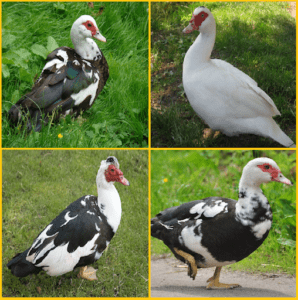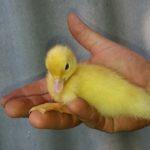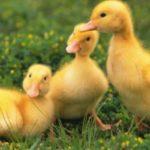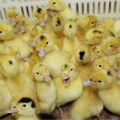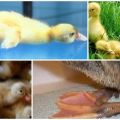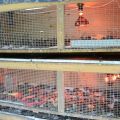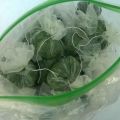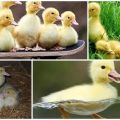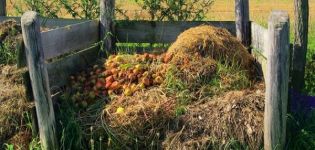Why ducklings do not eat well and do not grow, reasons and what to do
The reason that the duckling does not grow at all can be either poor nutrition or some kind of illness. It is necessary to analyze all the factors sequentially, studying each separately. Do not forget about a balanced diet of the bird from the first days of life. Ducklings definitely need greens, mash, cereals, vitamins. And also comfort - a special nursery (brooder), warmth and sufficient lighting.
Why do ducklings grow poorly
It happens that chicks of domestic duck eat poorly, do not gain weight. There are clear specifics in this issue. The principles of feeding and the diet of ducklings are different from that of chickens. This must be remembered. In addition, chicks should not be kept in the cold, in drafts, in damp rooms.
In nature, the duck feeds its young with grain, duckweed, fish - almost everything that it finds. Greens are a must, this should be taken into account when breeding domestic duck. Next, we will consider the likely causes, as well as solutions.
What to do if a problem occurs?
In order for the ducklings to grow well, from the very first days of life, as soon as they hatch, they should be provided with acceptable conditions. Chicks should dry up immediately. To do this, a heating pad is placed in a box or box in which the ducklings will be kept. Arrange a bedding so that the birds adapt faster and begin to gain weight.
The house should also have a drinking bowl with boiled (not raw!) Water: this is how ducklings learn to drink on their own. You can also force-drink with a pipette. For about a couple of days, the chicks do not need enhanced nutrition, they rest, gain strength.
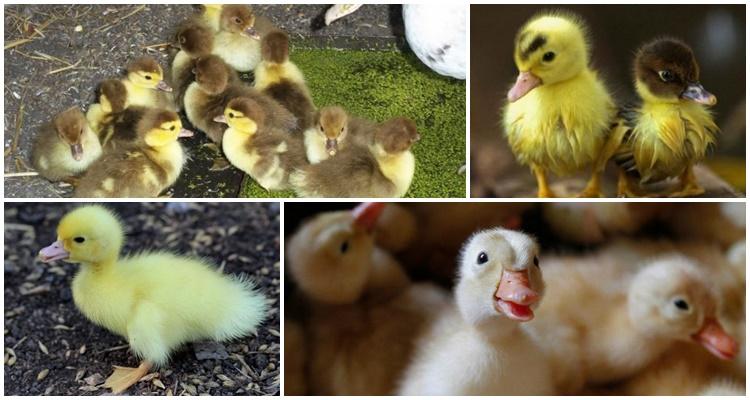
An equally important point is that the ducklings should not be hypothermic, they should not get into the drinker with their paws. Therefore, the design must exclude such behavior of chicks. Already in the first day, you can start feeding the ducklings with grain, finely chopped chicken eggs. Moreover, you need to feed the ducks from the palm of your hand, achieving the appearance of a reflex to self-feeding. Chicks also need greenery. The duck is given alfalfa, knotweed, clover, onions, even nettles.
If for some reason the newborns, the grown chicks have stopped eating, they grow poorly, attention should be paid to the factors:
- conditions of detention;
- the composition of the diet;
- probable symptoms of diseases.
After these reasons have been studied, they begin to solve the problem.
Preventive measures
In order for the ducklings to grow up healthy, strong, and not sick, as many components as possible should be included in the diet. For example, such:
- compound feed;
- food waste;
- needles;
- boiled potatoes;
- dairy products;
- chicken eggs;
- duckweed;
- crushed shell;
- gravel (sand);
- a piece of chalk;
- dry nettle.
The mash is not prepared in advance, for several days. The mixtures quickly deteriorate, sour, therefore, they are compiled immediately before feeding. The number of meals is 6 times a day or more. To exclude probable gastrointestinal diseases, a weak (pale pink) solution of potassium permanganate is prepared 2 times every 7 days. In the warm season, week-old ducklings are released on the grass in a closed aviary. Chalk, crushed shells, sand (gravel) are also important ingredients in the diet. And ducklings need them for normal digestion.
From 30 days of age, the amount of greens in the diet is increased. Then the ducks will gain weight. At the same time they put a bathtub or release the chicks into the water. It is also good to diversify the diet with fresh duckweed, this is a favorite delicacy of ducks. And then they begin to prepare the mash, adding food waste, zucchini, potatoes, even dry (freshly picked) greens to them.
